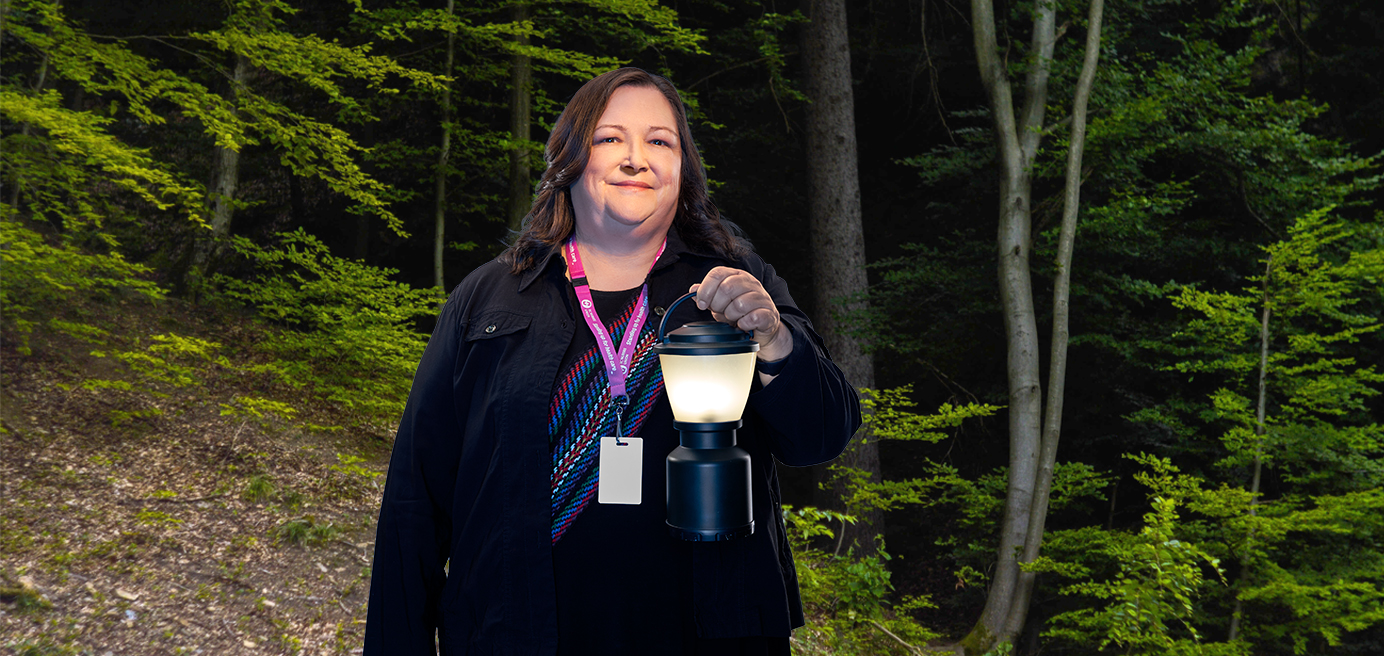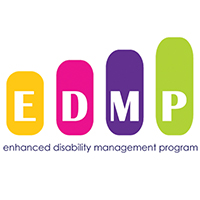 Healing Through Advocacy and Cultural Connection
Healing Through Advocacy and Cultural Connection

Even health-care experts like nurses can lose their way while navigating the twists and turns of an illness or injury that takes them off the job.
That’s where regional BCNU Enhanced Disability Management Program (EDMP) representatives come in. These dedicated professionals guide the way for BCNU members who need help returning to work safely after an illness or injury.
The union and health employers jointly run the EDMP using best practices. The program aims to enhance the support provided to members struggling with illness or injury by addressing barriers to returning to work.
EDMP reps collaborate with program participants and the employer’s disability manager. Together, they help remove barriers and develop a personalized plan for recovery. This plan may include traditional medical interventions, transitional work, a graduated return to work, workplace modifications and vocational rehabilitation or retraining. But EDMP reps don’t stop at traditional methods – they work holistically to support the whole nurse, showing respect for and upholding their cultural safety.
MEET WANDA VEER
Wanda Veer lives and works on the traditional, ancestral and unceded territory of the Lhtako Dene in Quesnel – and serves the vast region of Northern Health as an EDMP rep. Her work may be complex and emotionally demanding, but it’s also deeply fulfilling.
“This is what I was put on this land to do,” she says. And in every conversation, case plan and act of advocacy, she continues to live out that purpose – not just as a nurse or a rep, but as a bridge between healing, culture and community.
For Veer, nursing was never just a career – it was a calling. “I’ve always wanted to be a nurse,” she says. “I think I’ve always had that ingrained in me – the call to help other people.” After recently celebrating 30 years of nursing in Northern Health, Veer’s journey reflects her enduring commitment to helping others, especially in times of profound personal and professional challenge.
Before she became an EDMP rep, Veer explored various areas of nursing, working in medical-surgical units, long-term care, maternity, the operating room and management. Veer spent time in union leadership as a regional treasurer, which helped inspire her leap into the EDMP. Although she initially felt a little intimidated by the experience and expertise of other EDMP reps, her passion for advocacy and problem-solving quickly found a home in the role.
At the core of her work is the desire to help others through what can be the most difficult periods of their lives. “A big part of this job is navigating, listening and finding solutions for an individual,” Veer says. “What works for one person may not fit another. It’s about finding the right pieces of the puzzle.”
“This is what I was put on this land to do.”
- Wanda Veer
So, what exactly does an EDMP rep do? According to Veer, it’s a role built on collaboration, guidance and advocacy. “We guide people through their medical journey,” she explains. This includes liaising with members and third-party insurance providers and coordinating with employers and WorkSafeBC to create sustainable return-to-work plans. EDMP reps also point members to the resources they need, such as mental health practitioners, long-term disability advocates, Service Canada for medical employment insurance and assistance with licensing or financial challenges.
“There’s a lot of wheels turning for one single case management plan,” Veer notes. “You’re standing in the middle of it all, pulling everyone together.” That kind of coordination takes skill, experience and training – and Veer has all three. She holds disability management professional certification from the National Institute of Disability Management and Research, which matches employer-based disability management standards.
“This allows us to be the best advocates we can be for the membership,” she says, noting that she must recertify annually, just like nurses do, to maintain a high standard of care and advocacy.
Over the past 13 years, Veer has witnessed significant growth and transformation in the EDMP. “The biggest thing I see is the development of true collaboration,” she explains. Early in the program’s life, employers were often prescriptive, instructing EDMP reps how to manage cases. Now, Veer says, employers actively ask for input and work together with reps to find solutions.
Integrating cultural treatments into wellness plans has been equally significant. “Back in the beginning, there was uncertainty around using traditional Indigenous practices like smudging, sweat lodges or meditation,” Veer explains. “Now, we’ve come a long way in recognizing and supporting those treatments as valid and effective.” This evolution reflects a broader commitment in the EDMP to inclusion and respect for cultural diversity.
As a Métis and First Nations woman, Veer says her culture enriches her work, allowing her to connect with Indigenous nurses in ways others might not. “Not all members volunteer their cultural identity, which can mean missing out on important resources,” Veer says. She is mindful, respectful and intentional in her efforts to make sure Indigenous nurses feel seen and supported. “It’s about ensuring they have the resources they might not be aware of. That connection can make a big difference.”
Veer sees a bright future for the EDMP – one where inclusivity and awareness continue to expand. “I see it becoming more of a safe place,” she says, particularly for members from marginalized communities who may not have found the program relevant to them in the past. “I hope it continues to grow and support a bigger population.”
UPDATE (Summer 2025)

What is EDMP?
The Enhanced Disability Management Program is a proactive, customized disability management program that supports employees suffering from an occupational or non-occupational illness or injury.
Program participants benefit from a holistic case management plan that may include medical intervention, transitional work, a graduated return to work, workplace modifications and vocational rehabilitation or training.
The EDMP is solutions-focused and encourages collaboration between an employee, their employer and their union.
Members covered under the Nurses’ Bargaining Association are eligible for the EDMP if they:
- miss one shift due to work-related illness or injury, or
- miss five consecutive shifts due to non-work-related illness or injury.
Employees who are struggling at work and casual employees may also access the program.
If you are struggling at work with an illness or injury and need advice or support, email edmp@bcnu.org or log into the BCNU Member Portal. Your EDMP representative is found under the ‘Contacts’ tab.

